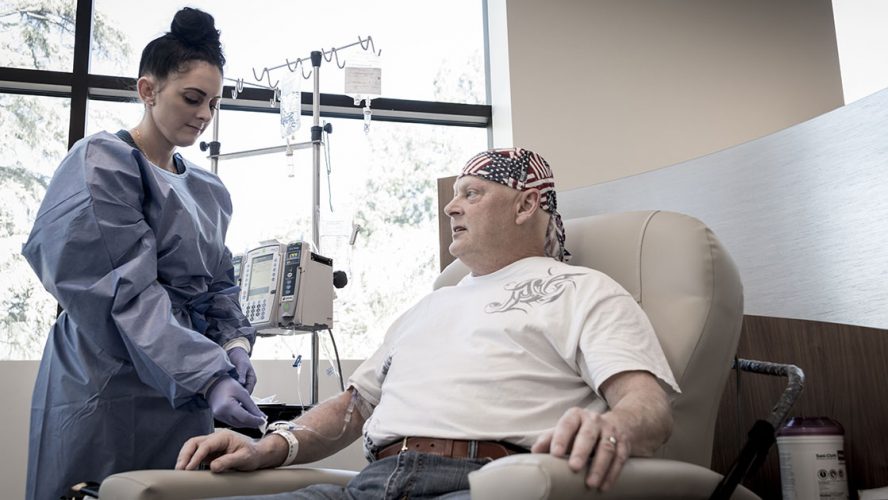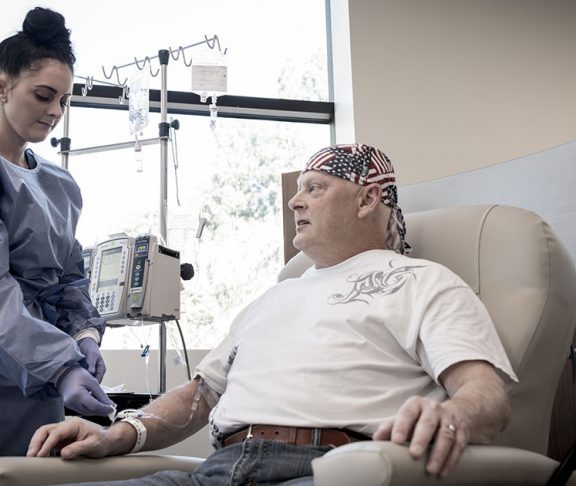Cancer care is changing rapidly, and the pace of change is accelerating. In 2019, major advances in precision medicine, gene-based therapy, immunotherapy, and many other areas brought new hope to countless patients. City of Hope clinicians and researchers are brimming with optimism as 2020 begins, and have a number of predictions for imminent breakthroughs in understanding, detecting, and treating cancer.
Liquid biopsies
“Liquid” biopsies can detect tumor DNA in the blood, identifying early progression or resistant disease faster than other methods. This is likely to be increasingly used in the United States for measuring residual disease and recurrence. “Our crystal ball is very clearly showing an increased trend for patients to be monitored with liquid biopsies,” said Stephen Gruber, M.D., Ph.D., M.P.H., director of City of Hope’s Center for Precision Medicine.
“A simple blood test can now detect disease recurrence up to one year before it can be detected by imaging or other routine tumor markers,” added City of Hope colorectal cancer specialist Marwan G. Fakih, M.D.
Theranostics
Researchers predict greater utilization of image-guided management in diseases using theranostics — a combination of “therapeutics” and “diagnostics” — to diagnose and treat cancer at the same time. One example is using a radioactive agent in the imaging process to “light up” cancer cells, then immediately deploying a second agent to attack those cells.
“We will see a further role of image-guided management in diseases including prostate cancer,” predicted City of Hope radiation oncologist Arya Amini, M.D., “where we can utilize imaging to detect microscopic disease that routine scans would not be able to identify.”
Immunotherapy
In current CAR T therapy, each patient’s own immune cells are reengineered to seek out and attack cancer, a painstakingly slow and expensive process. “Off-the-shelf” CAR T (immunotherapy) treatments can be developed with donor cells, reducing the cost of the procedure and widening its availability.
City of Hope gene therapy pioneer John A. Zaia, M.D., the Aaron D. Miller and Edith Miller Chair for Gene Therapy, predicted “an off the shelf CAR T-cell will show promise in early studies” in 2020.
Personalized medicine
There will be increased focus on personalized treatment plans by analyzing both a tumor’s genetic makeup and each patient’s “germline,” the inherited genetic characteristics that make each individual unique.
“This will be a very important step toward driving the use of genomics in oncology to help patients and their families,” predicted City of Hope clinical geneticist Thomas Slavin, M.D., because of all the added data it will provide, especially regarding a person’s risk of developing future tumors.
Digitization
The digitization of electronic medical records, radiology, and pathology allows for application of artificial intelligence in precision medicine. Synthesis of this information will enable early detection and patient-specific treatment optimization.
“Technology is advancing at such a rapid pace,” said City of Hope stomach cancer surgeon Yanghee Woo, M.D. “We pioneer the translating of these tools to ensure the safety, efficacy, and oncologic benefit to our patients.”

